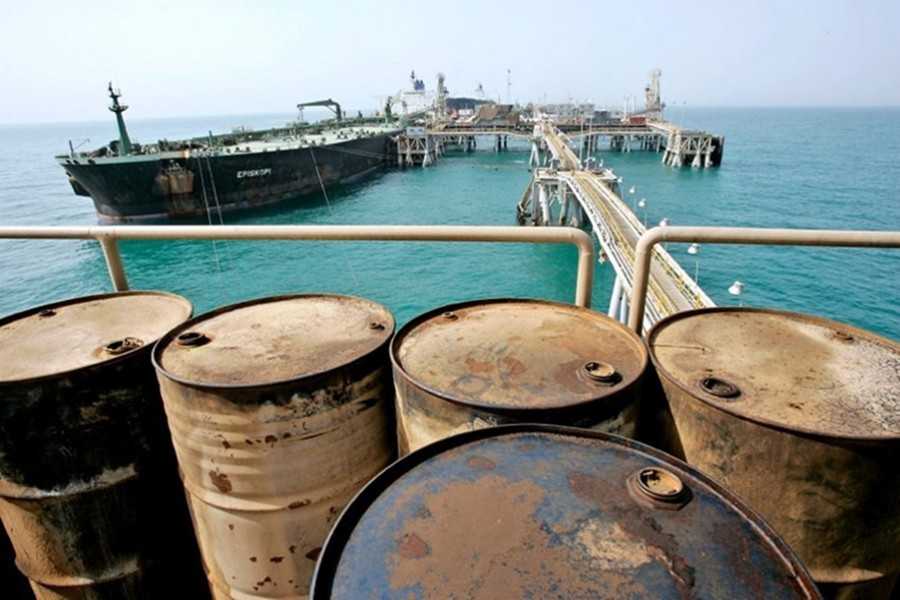Winter set to see 40pc fall found in high sulphur fuel oil imports

Image: Collected
Import of high sulfur fuel oil, or HSFO, during winter is projected to fall by around 40 % because of less consumption found in the energy plants commensurate with the low electricity demand found in the season.
The require for the fuel oil is unlikely to increase even though the program to import LNG, or liquefied gas, from the location market for December delivery gets highly uncertain because of greater than expected price offer in a recent bid, industry sources said.
President of Bangladesh's Independent Power Producers' Association, or BIPPA, Imran Karim expected that the overall import of HSFO could possibly be around 150,000 tonnes in December.
The privately-owned power plants are the lone importer of HSFO in Bangladesh.
The country's overall HSFO import through the current month of November will be around 200,000 tonnes because of less demand with nov temperature at the onset of winter, Mr Karim said.
During peak summer time, the united states imported around 250,000 tonnes of furnace oil.
Electricity demand found in Bangladesh usually falls found in winter due to non-operation of ac units, air coolers, electric fans found in the industries and residences, he said. Usage of room heaters can be rare in the united states as winter months in this country is not severe.
The government usually resorts to limit generation of electricity from HSFO and gasoil-fired power plants during winter, taking into consideration the more expensive of electricity generation compared to natural gas-fired, LNG-fired, hydro, or coal-fired power plants, said the BIPPA head.
Bangladesh features cancelled tender to import LNG from the spot industry for November and early December as a result of high location prices, and a good late December tender can be likely to be cancelled for the same reason.
If Bangladesh could manage to import LNG from spot marketplace in November and December, its HSFO import would decline further as the federal government may shut some HSFO-fired power plants to make room for businesses of more LNG-based power plants.
Major portion of the imported LNG and HSFO in Bangladesh is normally consumed mainly by the energy plants.
Concurrently, electricity demand might fall further with the looming second wave of coronavirus pandemic in Bangladesh like this of the other areas of the world which can see imposition of constraints on the movement of men and women in near future.
The country has almost doubled its HSFO import since June to around 220,000 tonnes per month weighed against 100,000 tonnes monthly in April and May as businesses resumed operations, albeit limited in scale, following lockdown for an extended period of time as a result of pandemic.
Bangladesh imported around 3.2 million tonnes of HSFO with 3.5 % sulfur during fiscal year 2019-20, which 2.90 million tonnes were imported by the private sector to run their power plant life and the remaining 300,000 tonnes by state-run Bangladesh Petroleum Corporation, or BPC.
The country's HSFO import in FY 2019-20 is almost equal to that of the prior FY's imports.
Bangladesh has round 5,700 MW, or megawatts, capacity HSFO-fired power crops, which 4,500 MW capacity HSFO-fired power plant life are actually owned by the private sector, as the remaining 1,200 MW capacity is state-owned.
Source: https://www.thefinancialexpress.com.bd
Tags :
Previous Story
- Moving abroad: countries people want to live in...
- Mubadala looks to intensify tech investments in European...
- How insecurity undermines SME growth
- Bangladesh opposes Indonesia’s move to slap safeguard duty
- Bangladesh PM says good communication network keeps overall...
- De Havilland Canada Delivers Dash 8-400 Aircraft to...
- Bangladesh demands green business recovery in Commonwealth B2B...
- Learn from Germany, concentrate on SMEs for monetary...